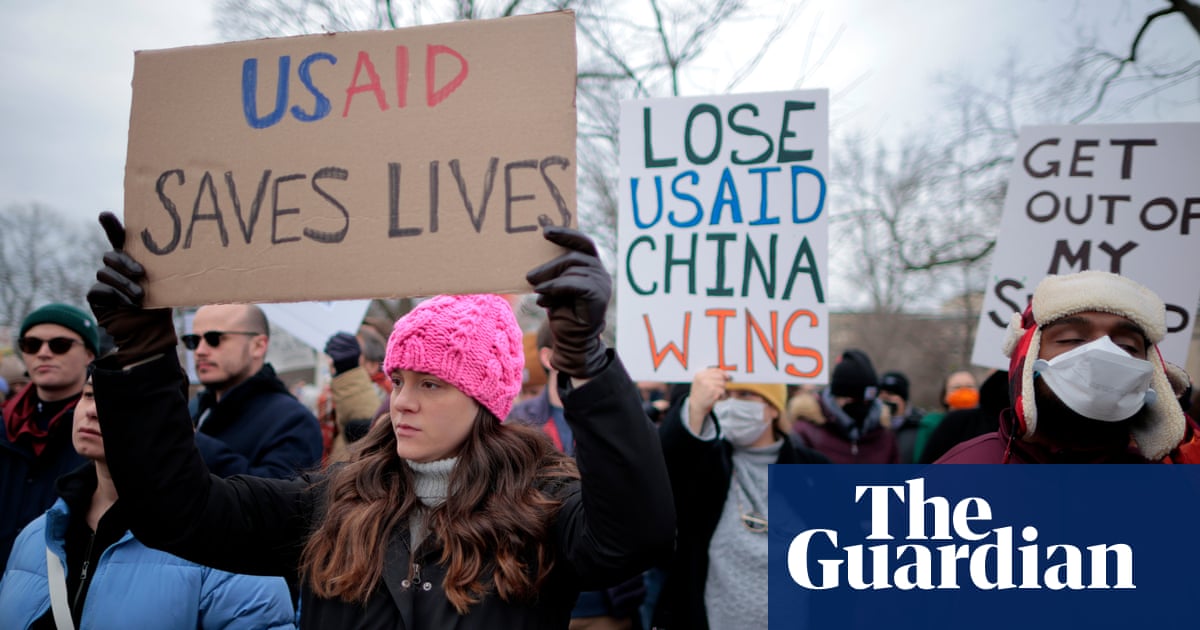The ICC is a permanent court that can prosecute individuals for war crimes, crimes against humanity, genocide and the crime of aggression against the territory of member states or by their nationals.
German Chancellor Olaf Scholz and other EU leaders said on Friday that Trump was wrong to impose sanctions on the ICC. “Sanctions are the wrong tool,” said Scholz. “They jeopardize an institution that is supposed to ensure that the dictators of this world cannot simply persecute people and start wars, and that is very important.” But Hungarian Prime Minister Viktor Orban, a staunch ally of Trump, said the sanctions showed it might be time to leave the ICC.
During the first Trump administration in 2020, Washington imposed sanctions on then-prosecutor Fatou Bensouda and one of her top aides over the ICC’s investigation into alleged war crimes by American troops in Afghanistan. The US, China, Russia and Israel are not members of the ICC.
The sanctions on ICC come after Trump withdrew the US from the World Health Organisation (WHO) and Paris Climate Accord. His muscular tariff policy also defines his general skepticism of multilateral institutions, the international bodies where different countries work together to resolve global issues and design global rules and frameworks. Trump is known for his policy of putting ‘America First’ and ‘Making America Great Again’ which is based on a distrust of multilateral institutions. Trump believes such bodies work at the cost of America’s own interests.While many think Trump’s America First policy will weaken global trade, security and climate action, many others believe multilateral bodies have been ineffectual at best in their roles.
Trump’s disdain for multilateral institutions and what it means
Trump issued an executive order on his first day in the White House to withdraw the US from the WHO. This was the second time Trump did that. In July 2020, several months after WHO declared COVID-19 to be a pandemic and as cases surged globally, Trump’s administration officially notified UN Secretary-General Antonio Guterres that the US was planning to pull out of WHO, suspending funding to the agency. Joe Biden reversed Trump’s decision on his first day in office in January 2021. At a September campaign rally, Trump said he would “take on the corruption” at WHO and other public health institutions that he said were “dominated” by corporate power and China.
Trump’s signature disdain for multilateral institutions, which he believes have given a raw deal to the US, is visible across his several policy moves. On his first day in office, he also signed an executive order withdrawing the US from the Paris climate deal, removing the world’s biggest historic emitter from global efforts to fight climate change for the second time in a decade. The move places the US alongside Iran, Libya and Yemen as the only countries in the world outside the 2015 pact, in which governments agreed to limit global warming to 1.5 degrees Celsius (2.7 degrees Fahrenheit) above pre-industrial levels to avoid the worst impacts of climate change.
“I’m immediately withdrawing from the unfair, one-sided Paris climate accord rip-off,” he said before signing the order. “The United States will not sabotage our own industries while China pollutes with impunity,” Trump said.
Trump’s approach cuts a stark contrast to that of former President Joe Biden, who wanted the US to lead global climate efforts and sought to encourage a transition away from oil and gas using subsidies and regulations. Trump has said he intends to unwind those subsidies and regulations to shore up the nation’s budget and grow the economy, but has said he can do that while ensuring clean air and water in the US.
On his first day in office, Trump also withdrew the US from the Organisation for Economic Cooperation and Development’s (OECD) global corporate tax deal, nullifying the progress made so far by the OECD to bring 140 countries on the same platform to levy a minimum 15 per cent tax on profits of multinational corporates. He also ordered the US Treasury to prepare options for “protective measures” against countries that have – or are likely to – put in place tax rules that disproportionately affect American companies.
“Because of the Global Tax Deal and other discriminatory foreign tax practices, American companies may face retaliatory international tax regimes if the United States does not comply with foreign tax policy objectives,” Trump’s memo read. “This memorandum recaptures our Nation’s sovereignty and economic competitiveness by clarifying that the Global Tax Deal has no force or effect in the United States.”
Trump’s tariffs policy has undercut the WTO (World Trade Organisation) since his previous term. During his first term in 2017-21, Trump paralysed the WTO’s top adjudications court by blocking judge appointments – a status that continues today – and announced tariffs on US imports of steel and aluminum. This time, he has warned that he would slap a 10% tariff on all imports.
Nearly two months ago WTO chief Ngozi Okonjo-Iweala was reappointed for a second term after nobody besides her threw their hat to lead the global commerce watchdog. The lack of competition came as little surprise to WTO observers who are bracing for a messy, recriminatory period of tit-for-tat tariffs under Trump. His former trade representative Robert Lighthizer has called her “China’s ally in Geneva” in an apparent swipe at her support for developing countries – a status Beijing currently enjoys at the WTO. In 2020, Trump’s administration sought to block her first term and she secured US backing when Biden succeeded Trump in the White House.
Trump’s America First policy is seen as an end of the US-led multilateral order. He is expected to prefer bilateral relationships to multilateral diplomacy as his attention is focused on American economic and security interests.
(With inputs from agencies)
Article by:Source:














📍 You have a transaction from our company. GET => https://telegra.ph/Get-BTC-right-now-01-22?hs=45da452cd7409e0ac993523dbe59590e& 📍
07/02/2025 at 5:58 PM
manwgh